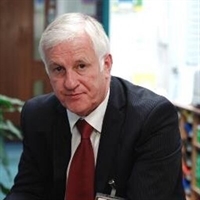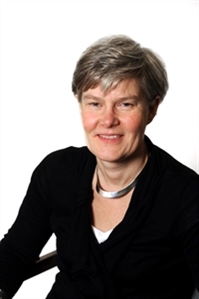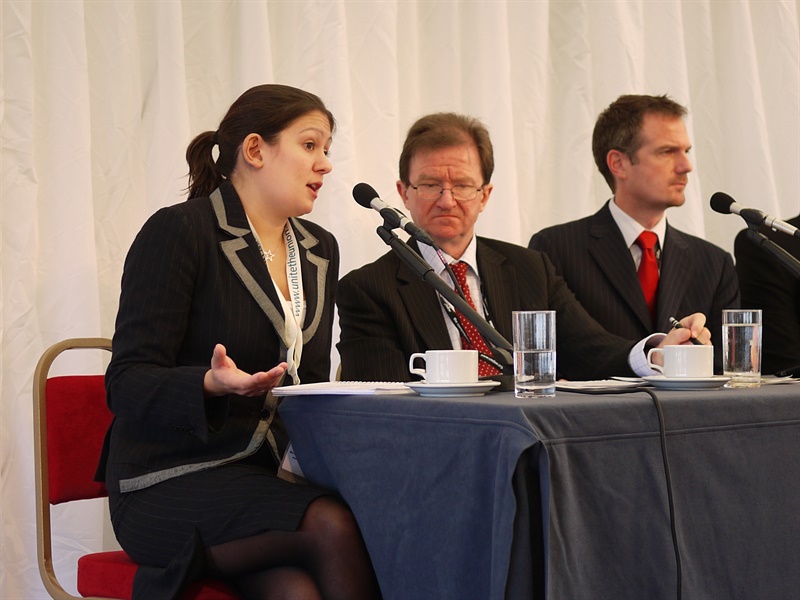03.09.14
Healthier but not Together: service change in Greater Manchester
The consultation currently taking place on a massive review of healthcare in Greater Manchester is intended to bring services closer together – but instead it seems to be driving them further apart. Sam McCaffrey reports.
Greater Manchester is in the midst of a consultation on one of the biggest reviews to healthcare services the area has seen. The proposals in Healthier Together promise to reshape primary and community care to improve access to GPs and keep more people out of hospitals while also joining up care so that the different healthcare services work better together. The review also proposes some major changes to hospital services across the conurbation and surrounding rural areas, with the centralisation of emergency and high-risk general surgery to four or five ‘specialist’ hospitals.
The proposed changes have proven controversial with clinicians, trusts, CCGs, MPs and councils all having differing opinions – but one point everyone agrees on is the case for change.
Variations in quality and outcomes
Mike Kane, Labour MP for Wythenshawe and Sale East, told NHE: “The aim of Healthier Together, to give patients across the region the same standard of excellent service wherever they live, is the right one. The challenge is huge. Manchester has the highest premature death rate of any local authority in the country. There can be no doubt that healthcare services in Greater Manchester need to change.”
There is also a massive variation in terms of quality and outcomes for patients across Greater Manchester, which is a driving force behind the review. Dr Chris Brookes, medical director of Healthier Together, told us: “For me this programme is all about quality, safety and saving lives. The reason we want to do this is because there is variations in quality across Greater Manchester currently. There is variation in terms of second rate services, there is variation in terms of supervisions of junior doctors by consultants, and most importantly there is variation in the outcomes of patients, which is especially the case in emergency surgery.”
The current system is also financially unviable with a funding gap of more than £1bn out of a current spend of £6bn across Greater Manchester.
'Local general' vs 'specialist' hospitals
Where people begin to disagree with Healthier Together is with its proposals to try to solve these problems. The most contentious area is the proposed changes to hospital services with the creation of ‘specialist hospitals’ and ‘local general hospitals’, and combining the medical teams from separate hospitals into ‘single shared services’.
Under the proposals four, or possibly five, specialist hospitals will be created and it is only at these sites that high-risk and emergency general surgery will be performed. The local hospitals will still provide A&E services, planned general surgery, diagnostics and their own specialisms.
The medical staff in the specialist and local hospitals will combine into a single service with the goal of providing a greater consultant presence. The proposals require an A&E consultant to be present 12 hours a day, seven days a week at local general hospitals, and for at least 16 hours a day at specialist hospitals.
'No evidence'
Andrew Foster (pictured below), chief executive of Wrightington, Wigan and Leigh NHS Foundation Trust, says Healthier Together proposes an “inflexible, top-down model” and a “one-size-fits-all” solution for Greater Manchester, and that it has been designed without the input of the clinicians who would have to make the system work. He also argues that there is no evidence to support the model that is being proposed.
 He told NHE: “Not only is there no evidence for the benefits of centralising emergency surgery, but they make this claim that it can save 1,500 lives and there is no evidence behind that claim. When you look at it, what they’re simply saying is that if every hospital in Manchester achieved the same surgical mortality rate as the best hospitals in the whole of England then it would save 1,500 lives. So that’s like an arithmetical calculation but it’s not a ‘how to do it’.”
He told NHE: “Not only is there no evidence for the benefits of centralising emergency surgery, but they make this claim that it can save 1,500 lives and there is no evidence behind that claim. When you look at it, what they’re simply saying is that if every hospital in Manchester achieved the same surgical mortality rate as the best hospitals in the whole of England then it would save 1,500 lives. So that’s like an arithmetical calculation but it’s not a ‘how to do it’.”
The consultation lays out eight options for the organisation of specialist and general hospitals. Under all eight options, Royal Oldham Hospital, Salford Royal Hospital and Manchester Royal Infirmary are designated as specialist – because of geography and the unique services they provide. This leaves up to two specialist ‘slots’ up for grabs. The Royal Albert Edward Infirmary in Wigan is one of the hospitals being considered to be the specialist centre for the North West area; the other hospital in contention is the Royal Bolton. In south Manchester, Wythenshawe Hospital is being considered along with Stepping Hill Hospital in Stockport.
Forcing hospital trusts to compete
Healthier Together has faced specific criticism for the way it is forcing hospitals to compete with each other to become one of the specialist centres. Andrew Foster, whose Royal Albert Edward Infirmary is competing with Royal Bolton, said: “They’ve gone to this win/lose of specialist/local hospitals, so instead of having some sort of flexibility, every hospital is now forced into a beauty parade to decide who is going to be a winner and who is going to be a loser. What has been created is a very divisive process. In south Manchester you’ll see Stockport and Wythenshawe basically attacking each other, saying ‘we’re the ones that need to be the winning hospital’. And in the North West [area], Wigan and Bolton have been put into the same position. So rather than having the whole of the NHS working together to solve the problems it’s essentially pitched us into an unhelpful confrontation.”
Bringing hospitals together
Dr Brookes defended the plans, saying they were about bringing hospitals closer together and having them work in concert instead of in silos as they currently do.
But another area of concern is the knock-on effect of losing emergency general surgery and how this might affect other services offered by the hospital. Kate Green, Labour MP for Stretford and Urmston (pictured), said: “The specialisms and the availability of emergency surgery and all the acute provision are interdependent. If you go in for one particular condition it’s likely you might need to draw on different specialisms, there may be an unexpected turn of events that means there needs to be an emergency response.
“You can’t take out one element of what is available without considering what the impact might be on specialisms that ostensibly aren’t being touched, but in fact wouldn’t be viable without other things being on site. And I haven’t seen any holistic analysis of how Healthier Together could damage that, it doesn’t seem to have been considered.”
Specialised services
This worry was echoed by Dr Attila Vegh, chief executive of University Hospital of South Manchester NHS Foundation Trust, who believes that losing out on specialist status in the consultation could affect many of the other highly specialised services available at Wythenshawe.
He said: “While the Healthier Together consultation is not about the specialist services that we provide, and it is only major emergency services that are under review, the longer term unintended consequences of not being recognised as a specialist hospital would inevitably mean that our ability to retain and enhance our specialist services could be compromised.
“This has not been fully understood – what sort of strategic implications it would have. Also, the retention and recruitment of the specialist staff needed to maintain and enhance these highly specialised services like cardiac, thoracic, transplant, breast, and burn and plastic services, for which we are a regional centre of excellence with a very strong tertiary presence, could be also compromised.”
The issue of retaining and recruiting staff is one that worries many of the chief executives who face the possibility of becoming a ‘local’ as opposed to ‘specialist’ hospital. Dr Jackie Bene, chief executive of Bolton NHS Foundation Trust, believes the branding of “specialist” and “local” will be detrimental to those who are local hospitals and make it tougher for them to recruit and retain consultant staff in particular.
Consultation controversy
In addition to its actual proposals, Healthier Together is also receiving criticism for the way the consultation is being handled. It is currently running for a 12-week period from July until the end of September. Twelve weeks is the recommended minimum for a consultation according to the Government Code of Practice on Consultation. However, if a consultation is particularly complex, as many argue Healthier Together is, or if it takes place at a time when consultees are less able to respond, such as Christmas or summer, then the guidelines say a longer period of consultation should be considered.
In a Parliamentary debate on the subject, many Greater Manchester MPs spoke out against the consultation process, including Mike Kane, David Nuttall, Kate Green and Graham Stringer. They believe there is little democratic input, with most of the decisions already being made. Lisa Nandy, MP for Wigan (below), said to NHE: “The main worry is the lack of democracy, decisions which will shape the future of health services across our region are being made by unelected officials, with no transparency or accountability. Information is not easy to get hold of and the consultation document itself is hard to understand. If the idea is to get the general public engaged with this process then there is an awful lot of work yet to do.”

The lack of public engagement is a point many of the MPs have made. When asked about it Alex Heritage, programme director for Healthier Together, said that the Committees in Common (made up of representatives from all 12 CCGs in the region, who are leading the review) received a midterm report on the level of response and that more than 4,000 documents or online responses had so far come through. With an affected population of over 2.7 million, that means barely 0.1% of the population has responded.
A decision already made?
Events are being held around Greater Manchester to engage the public on the proposals, but many have had been poorly attended. Kate Green, who has attended several of these events in her constituency, said: “I’m very concerned that the public seem to be very unsighted on this consultation process. I was at a meeting with members of the local Parkinson’s support group, people who obviously very heavily rely on NHS and social care services, many of the people there didn’t even know about the consultation or the Healthier Together proposals at all. The meeting that took place in Trafford was very, very thinly attended and I understand that’s been true in other parts of Greater Manchester.”
Healthwatch Wigan has also expressed its concerns, saying public engagement has been poor, too many meetings have been secretive, and the formal consultation has been badly managed. Its chair, Sir Ian McCartney, spoke to NHE in detail about its concerns, but said the organisation plans to set out its view more formally once it has a better flavour of what local people are saying at events during the current consultation period.
The lack of engagement leads many to believe that the decision regarding the proposals has already been made. When he thinks about Healthier Together, Andrew Foster says he is often reminded of a quote he saw on Twitter: “It said, ‘The purpose of consultation in the NHS is to find support for a decision that’s already been made’. That’s very much the way this particular one looks.”
Tell us what you think – have your say below or email [email protected]